
Question and Answers Forum
Question Number 171910 by Tawa11 last updated on 21/Jun/22
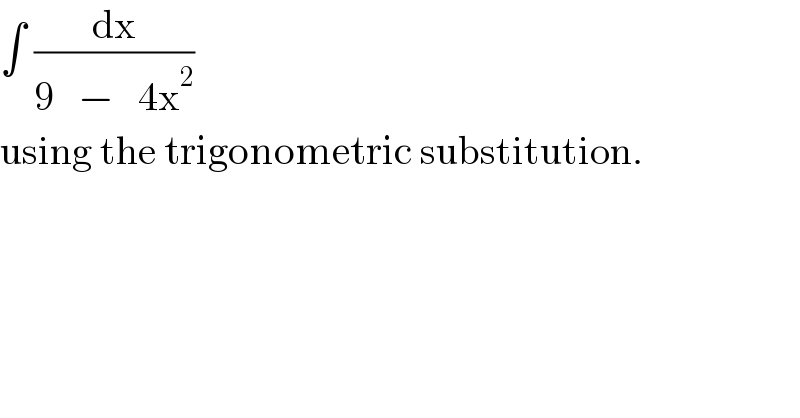
Answered by aleks041103 last updated on 21/Jun/22
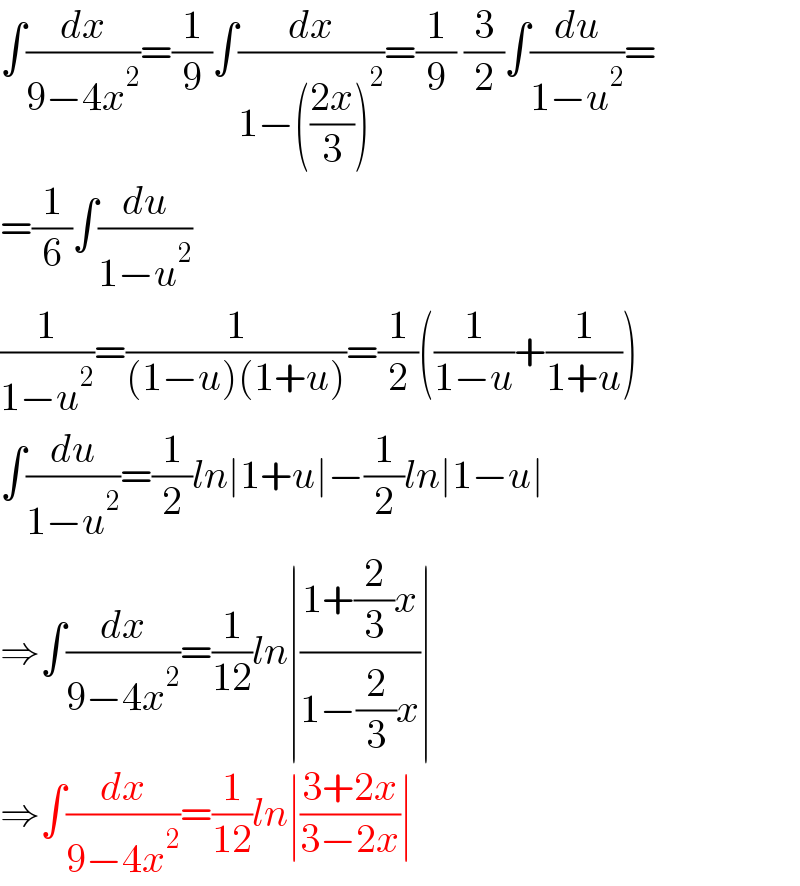
Commented by Tawa11 last updated on 21/Jun/22

Commented by Tawa11 last updated on 21/Jun/22

Commented by Tawa11 last updated on 21/Jun/22

Commented by mr W last updated on 21/Jun/22

Commented by Tawa11 last updated on 21/Jun/22

Commented by mr W last updated on 21/Jun/22

Commented by Tawa11 last updated on 21/Jun/22

Commented by Tawa11 last updated on 22/Jun/22
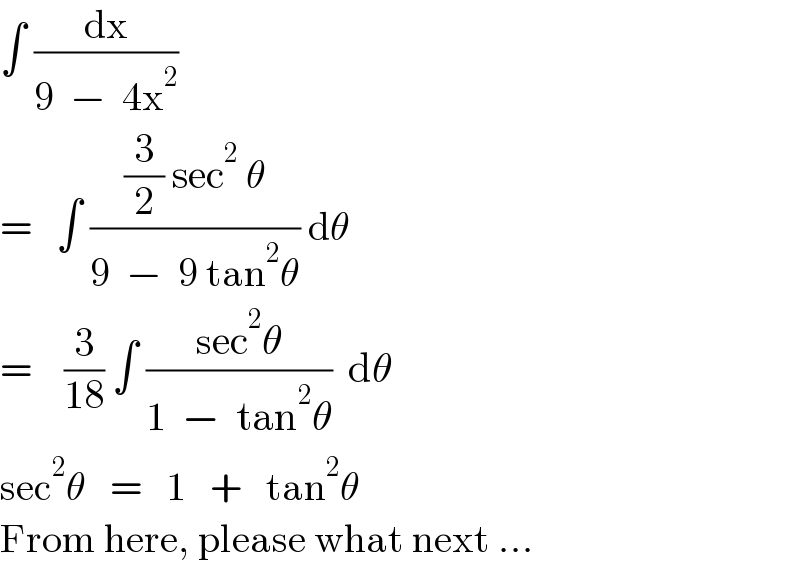
Answered by ajfour last updated on 22/Jun/22
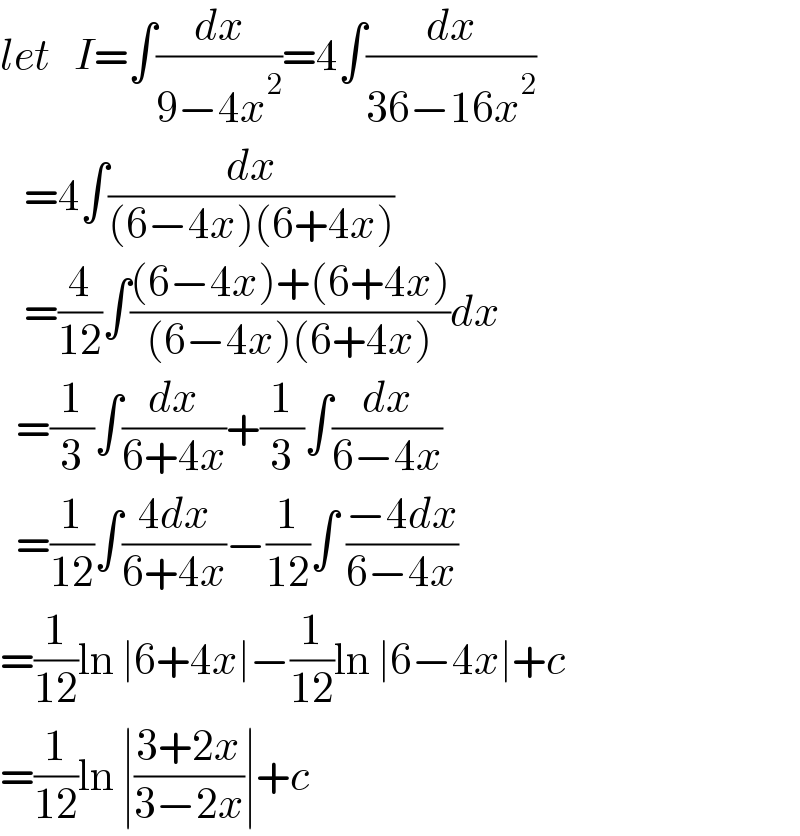
Commented by Tawa11 last updated on 22/Jun/22

Answered by thfchristopher last updated on 22/Jun/22
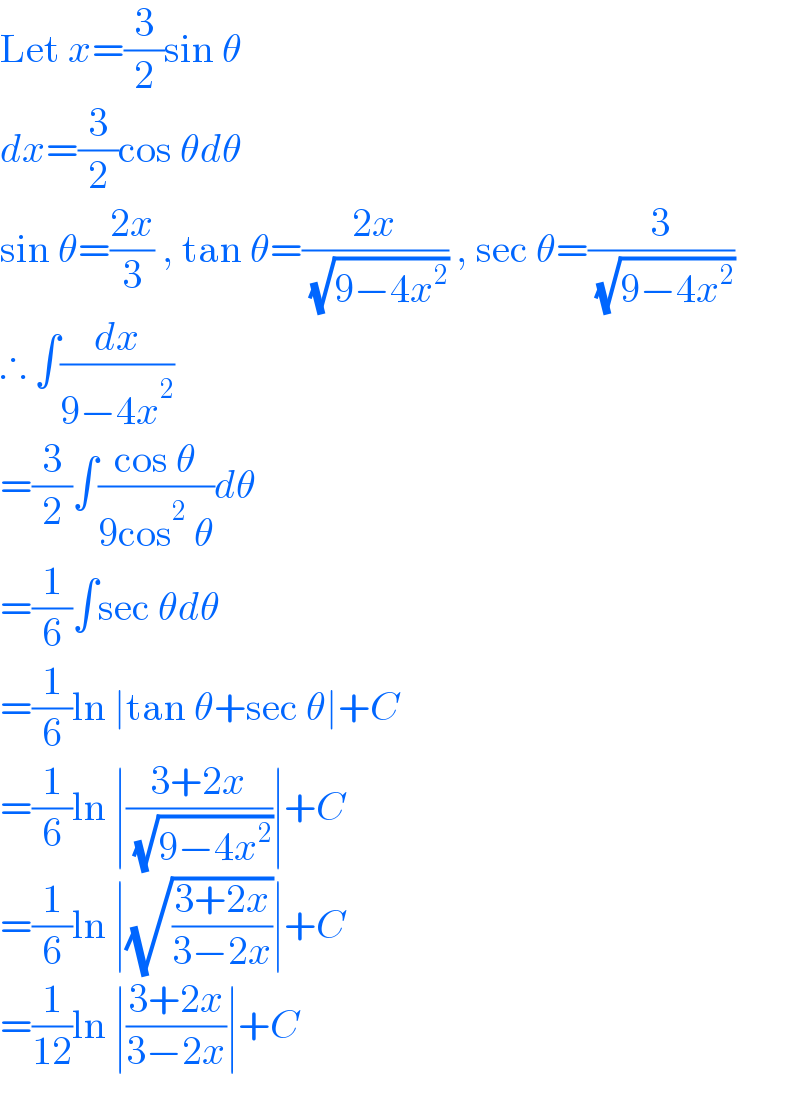
Commented by thfchristopher last updated on 22/Jun/22
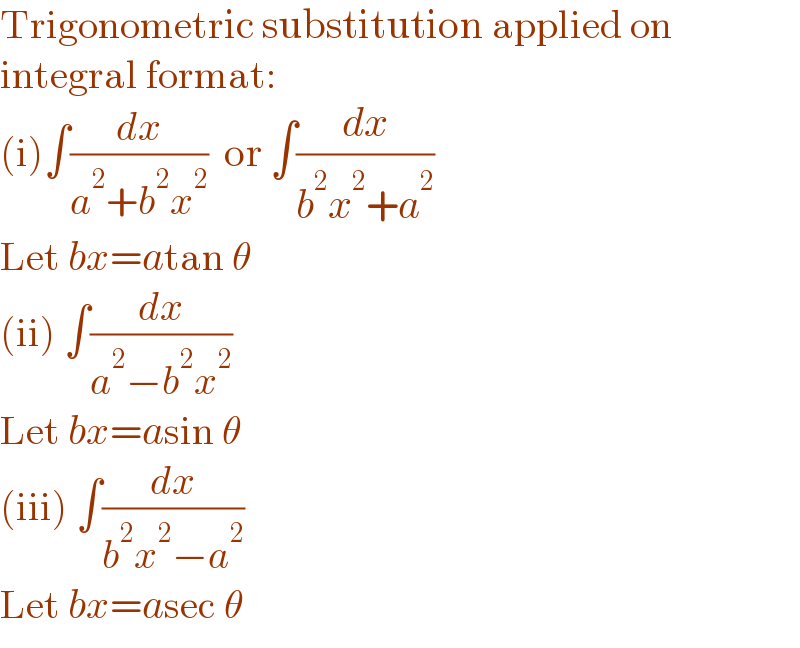
Commented by Tawa11 last updated on 22/Jun/22

Commented by Tawa11 last updated on 22/Jun/22

Commented by mr W last updated on 22/Jun/22
![a substitution doesn′t make the thing easier in any form, therefore unnecesary. e.g. ∫(dx/(a^2 −b^2 x^2 )) =(1/(2a))∫((1/(a−bx))+(1/(a+bx)))dx =(1/(2ab))[−ln (a−bx)+ln (a+bx)] =(1/(2ab))×ln ∣((a+bx)/(a−bx))∣+C ∫(dx/(b^2 x^2 −a^2 ))=−∫(dx/(a^2 −b^2 x^2 ))=−(1/(2ab))×ln ∣((a+bx)/(a−bx))∣+C](Q171962.png)
Commented by Tawa11 last updated on 22/Jun/22

